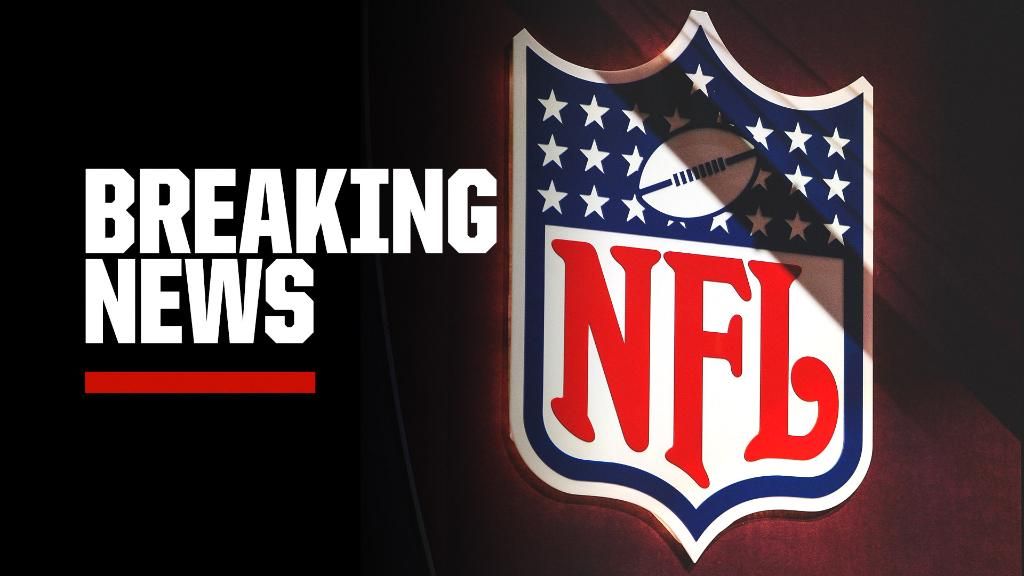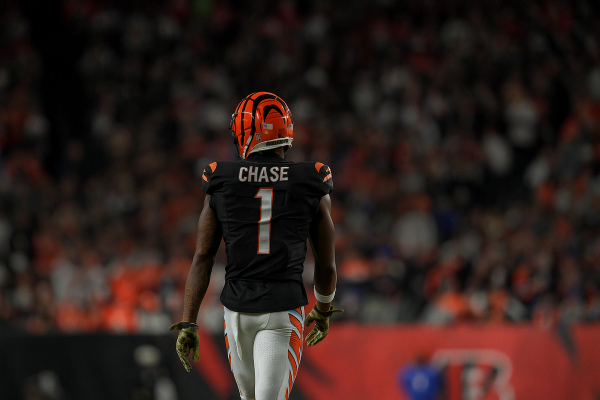The 30-Second News Filter: How to Instantly Spot Betting-Relevant Breaking News


James White
Co-Founder of HotTakes
Your phone buzzes. Another "BREAKING" notification. Some reporter's tweeting about a backup linebacker's breakfast choice like it's the trade of the century. Meanwhile, you're scrolling through endless noise trying to find the one piece of news that actually matters for tonight's games.
Here's the thing -- 99% of sports "breaking news" is completely useless for betting decisions. But that other 1%? That's where fortunes are made and lost in the 10 minutes before Vegas adjusts their lines.
The problem isn't that there's no valuable information out there. The problem is drowning in the avalanche of irrelevant updates, hot takes, and manufactured drama that fills every sports feed. By the time you've sorted through the garbage, the smart money has already moved, the lines have shifted, and the opportunity is gone.
That's why sharp bettors don't scroll -- they filter. They've trained themselves to instantly recognize betting-relevant news from meaningless noise. And they do it in about 30 seconds.
The IMPACT Method: Your 30-Second News Evaluation System
Real talk: If you're spending more than 30 seconds deciding whether breaking news matters for your bets, you're already too late. The IMPACT method gives you a systematic way to instantly categorize any piece of sports news into three buckets: "Act Now," "Monitor Closely," or "Ignore Completely."
Here's how it works:
I - Immediate Game Effect (10 seconds)
The Question: Does this directly change what happens on the field/court in the next 48 hours?
Act Now Triggers:
Starting player ruled out/questionable
Weather alerts for outdoor games
Last-minute lineup changes
Referee assignments with extreme tendencies
Monitor Closely Signals:
Key reserves with injury updates
Equipment/venue issues being resolved
Coach availability questions
Ignore Completely Examples:
Player social media drama
Future contract negotiations
Family/personal life updates
Media availability comments
Pro Tip: If the news doesn't change who's playing or how they're playing in the immediate future, it's probably noise.
M - Market Timing (5 seconds)
The Question: Are you seeing this before or after the betting market has already reacted?
Act Now Indicators:
Breaking on reporter's personal account before major outlets
Coming from team beat writers vs. national media
Posted within 30 minutes of occurrence
Lines haven't moved yet on your sportsbook
Monitor Closely Signs:
Major outlets picking up the story
Some line movement but not across all books
News is 1-2 hours old
Ignore Signals:
Trending on ESPN homepage
Lines have already moved significantly
Story is 4+ hours old
Everyone's already talking about it
Bottom Line: If it's already trending, you're too late to profit from it.
P - Probability Shift (5 seconds)
The Question: Does this meaningfully change the likelihood of any game outcome?
High Impact Situations:
Elite player availability changes
Weather affecting key aspects of game style
Coaching staff disruptions
Venue changes or capacity issues
Medium Impact Areas:
Role player injuries in thin position groups
Minor weather that affects one team more
Referee crews with historical patterns
Rest/travel advantages shifting
Low Impact News:
Fines or suspensions for future games
Practice squad moves
Media criticism or praise
Statistical milestones achieved
Key Insight: Ask yourself: "If I knew this yesterday, would I have bet differently?" If not, it's probably not worth acting on today.
A - Alternative Narrative (5 seconds)
The Question: Does this create a narrative that conflicts with current market pricing?
Contrarian Goldmine Situations:
Bad news about public favorites
Good news about heavy underdogs
Information that contradicts popular media storylines
Behind-the-scenes intel that challenges surface appearances
Follow-the-Market Scenarios:
News confirming what sharp money already suspected
Information that supports existing line movement
Updates that align with injury reports
Narrative-Neutral News:
Routine roster moves
Expected injury updates
Standard coach speak
Predictable team announcements
Smart Move: The best value often comes when news creates a story that goes against what everyone believes.
C - Confidence Level (3 seconds)
The Question: How reliable is this source and information?
High Confidence Sources:
Team beat reporters with track records
Official team announcements
Verified injury reporters
Direct quotes from coaches/players
Medium Confidence Signals:
National reporters citing sources
Local radio/TV station reports
Multiple unverified sources saying same thing
Social media posts from verified accounts
Low Confidence Red Flags:
Anonymous rumors
Single unverified source
Speculation presented as fact
Clickbait headlines with weak content
Reality Check: Better to miss an opportunity than chase fake news into a losing bet.
T - Timeline for Correction (2 seconds)
The Question: How long before the market fully adjusts to this information?
Act Immediately (Under 10 minutes):
Major injury announcements
Severe weather alerts
Starting lineup changes
Venue emergencies
Monitor for Entry (10-60 minutes):
Minor injury updates
Referee assignments
Equipment/surface issues
Travel delays
Plan for Later (1+ hours):
Suspension news for future games
Trade rumors and speculation
Practice reports
Non-urgent team news
Time Management: Your window shrinks every minute. The faster you can identify and act, the better your value.
The Three-Bucket System in Action
Bucket 1: Act Now (Immediate Action Required)
What It Looks Like: Mahomes listed as questionable 2 hours before kickoff with ankle injury, reported by Chiefs beat writer, no line movement yet.
Your Move: Check multiple sportsbooks immediately, compare current lines to historical data without this player, place bets before market adjusts.
Time Window: 5-15 minutes before everyone else catches on.
Bucket 2: Monitor Closely (Stay Alert, Prepare to Act)
What It Looks Like: Reports of heavy snow expected for outdoor game tonight, forecasts still developing, some early line movement detected.
Your Move: Set alerts for weather updates, track line movements across books, research historical data for similar conditions, prepare to act when forecast solidifies.
Time Window: 30 minutes to 2 hours for optimal entry.
Bucket 3: Ignore Completely (Don't Waste Mental Energy)
What It Looks Like: Backup quarterback posts cryptic Instagram story, national media speculating about team chemistry, no actual impact on availability.
Your Move: Scroll past without stopping. Focus energy on news that actually affects outcomes.
Mental Bandwidth: Save your attention for stuff that matters.
Advanced Filtering Techniques
The Social Media Source Hierarchy
Team beat reporters
(highest value)
Local sports radio/TV
(good local intel)
National injury reporters
(Adam Schefter, Shams Charania)
Verified team accounts
(official but often late)
National sports media
(usually too late for value)
Random Twitter accounts
(ignore unless verified elsewhere)
Red Flag Phrases That Signal Noise
"Sources say..."
"Rumors suggest..."
"It appears that..."
"Many believe..."
"Speculation surrounding..."
"Could potentially..."
Green Light Language for Action
"Officially ruled out"
"Will not play"
"Starting in place of"
"Upgraded/downgraded to"
"Team announces"
"Confirmed by coach"
Building Your Personal News Network
Essential Follows for Each Sport
NFL: Beat writers for teams you bet regularly, Adam Schefter, Ian Rapoport
NBA: Shams Charania, Adrian Wojnarowski, team beat reporters
MLB: Jeff Passan, Ken Rosenthal, local beat writers
College Sports: Pete Thamel, local college reporters
Setting Up Smart Notifications
Turn on notifications for tier-1 sources only
Use keyword filters for player names you're tracking
Set up alerts for weather services in outdoor sports
Create separate feeds for breaking news vs. analysis
The "Sources I Trust" List
Build a mental database of reporters who break news first and accurately. Track their hit rate over time. Some reporters are better for certain types of news -- injury reporters vs. trade reporters vs. weather services.
Common Filtering Mistakes That Cost Money
Mistake #1: Chasing Every "Breaking" Alert
The Problem: Most breaking news isn't actually breaking or relevant.
The Fix: Use the 30-second IMPACT filter before you even click the notification.
Mistake #2: Overvaluing Dramatic Headlines
The Problem: Clickbait designed for engagement, not accuracy.
The Fix: Read past the headline. Look for concrete facts, not emotional language.
Mistake #3: Ignoring Source Quality
The Problem: Treating all information as equally reliable.
The Fix: Weight information based on source track record and verification.
Mistake #4: Acting on Stale Information
The Problem: Betting on news that's already been priced into the market.
The Fix: Check timestamps and line movement before acting on any news.
Mistake #5: Getting Distracted by Irrelevant Drama
The Problem: Wasting mental energy on noise instead of signal.
The Fix: Stick to the three-bucket system. If it doesn't affect game outcomes, ignore it.
The 30-Second Challenge: Practice Makes Perfect
Here's how to train your news filtering reflexes:
Daily Practice Routine
Morning Scan (5 minutes): Review overnight news using IMPACT method
Midday Check (3 minutes): Filter lunch-hour updates quickly
Pre-Game Review (10 minutes): Focus only on news affecting today's games
Post-Game Analysis (5 minutes): Review which news actually mattered
Weekly Skills Building
Track your filtering accuracy: Which news did you act on? Which paid off?
Review missed opportunities: What signals did you miss?
Refine your source list: Which reporters consistently break news first?
Update your keyword filters based on current betting focus
Your News Filtering Action Plan
Starting tomorrow, implement this three-step system:
Step 1: Set Up Your Filters
Follow only tier-1 sources for your sports
Set up keyword notifications for key players/teams
Create separate feeds for breaking news vs. analysis
Install apps that aggregate breaking news efficiently
Step 2: Practice the IMPACT Method
Use the 30-second evaluation on every piece of sports news for one week
Track your decisions and outcomes
Refine your personal triggers for each category
Build speed through repetition
Step 3: Create Your Action Protocols
Define exactly what you do for each bucket category
Set up quick access to multiple sportsbooks
Prepare templates for quick line comparison
Establish position sizing rules for different news types
The Real Edge: While Others Scroll, You Filter
Every minute you spend reading irrelevant sports news is a minute you're not spending on analysis that actually matters. Every piece of noise you filter out is mental bandwidth saved for the signals that create value.
The sharpest bettors don't know more news than everyone else -- they're just better at instantly identifying which news actually matters. They've trained their brains to cut through the noise and focus only on information that changes game outcomes.
That's what the 30-second news filter gives you: the ability to separate betting gold from information garbage before your competition even finishes reading the headline.
Start using the IMPACT method today. Your bankroll will thank you, and your stress levels will drop dramatically once you stop chasing every "breaking" story that doesn't actually break anything important.
Because in the end, the best reaction to most breaking news is no reaction at all. Save your energy for the news that actually creates value, and watch your betting results improve as your information diet gets cleaner.
Ready to test your filtering skills? Join the HotTakes community and share your biggest news filtering wins (and mistakes). We're all learning to cut through the noise together.
Continue the Journey
with More Expert
Insightsmore Articles

Analysis Paralysis: When Too Much Research Kills Your Edge
Mental Edge
The Closing Line Lie: Why Following 'Sharp' Money Isn't Actually Sharp
Market Inefficiencies
The Player Prop Goldmine: How Books Profit from Fantasy Football Thinking
Market Inefficiencies
Why Primetime Games Are Sharp Money's Favorite ATM Machine
Market Inefficiencies